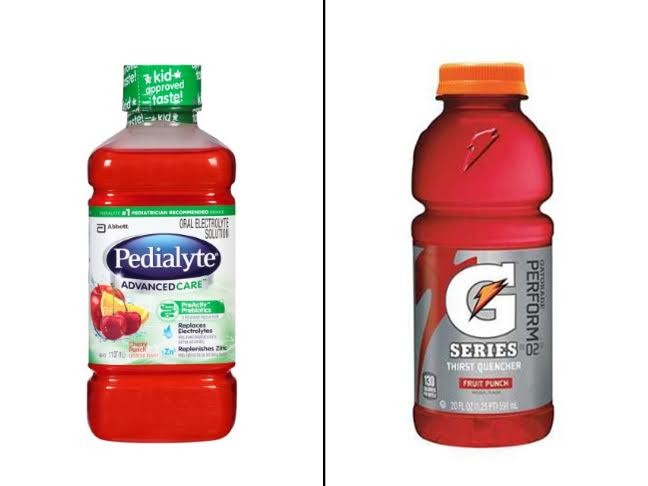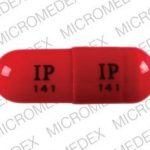
Is Pedialyte Good for Adults, and Is It Better Than Gatorade?
Staying hydrated is crucial for your body. Adults can drink Pedialyte, but it is primarily a rehydration drink for diarrhea-related dehydration, while Gatorade is more suitable for exercise-induced dehydration.
Staying hydrated is essential, especially after physical activity in hot weather. Pedialyte is a drink that replenishes and rehydrates your body. It is commonly given to children as an oral rehydration solution (ORS), but it also has benefits for adults.
Throughout the day, as you sweat, you lose water. Physical activities and conditions like diarrhea further contribute to water loss, leading to dehydration. Dehydration occurs when you do not consume enough fluid to replace the lost water, sugars, and salts in your body. Lack of fluids disrupts your electrolyte and mineral balance, affecting your body’s functioning.
Anyone can become dehydrated, but babies, older people, individuals with diarrhea, diabetes, or alcoholism, and athletes are more susceptible. Athletes lose significant amounts of fluids through sweat during exercise.
If you experience signs of dehydration such as thirst, dry mouth, lightheadedness, tiredness, dark-yellow urine, or a decrease in frequency of urination, it is essential to hydrate immediately.
How to treat dehydration?
If you are dehydrated, drink fluids like water, diluted squash, or fruit juice. You can also take oral rehydration solutions (ORS) to restore electrolytes in your body.
For infants and children, water alone is insufficient for hydration as they have low electrolyte levels. Diluted squash or rehydration solutions are given to maintain electrolyte balance. Rehydration solutions contain sugars or glucose, sodium, and potassium salts to replenish body fluids.
Various hydration products are available on the market, including Pedialyte and Gatorade.
Research suggests that hydration drinks like Pedialyte can better retain fluids in people with dehydration. These drinks contain carbohydrates and electrolytes like sodium and potassium, improving fluid retention and promoting faster rehydration compared to water alone.
What is Pedialyte?
Pedialyte is a popular hydration drink brand in the U.S., available at most grocery stores and pharmacies. It contains salts, sugar, minerals, and water to replace electrolytes and prevent dehydration. Pedialyte is commonly used as a treatment for dehydration in babies and infants with diarrhea or vomiting.
Multiple Pedialyte products are available, with Pedialyte Classic being the most common. It is a ready-to-drink, fruit-flavored hydration beverage available in a bottle. Pedialyte is also available without any flavor, and there are other variations like Pedialyte Advanced Care, Pedialyte Sport, and Pedialyte Organic, each with different electrolyte concentrations. The brand also offers frozen popsicles and stick packs in powder form, which need to be mixed with water.
What does Pedialyte contain?
A 355-milliliter (12-ounce) serving of Pedialyte contains:
- 35 calories
- 9 grams of carbohydrates
- 9 grams of added sugar
- 370 milligrams of sodium
- 280 milligrams of potassium
It also includes ingredients such as dextrose or glucose, citric acid, and other minerals like zinc. Moreover, Pedialyte contains natural and artificial fruit flavors, artificial sweeteners like sucralose and acesulfame potassium, as well as artificial food coloring.
Is Pedialyte for adults?
Pedialyte is not only for kids; it can also be used by adults. If you are at a high risk of dehydration, consuming Pedialyte can help prevent it. Furthermore, Pedialyte is used as a substitute for sports drinks, a remedy for muscle cramping, and a cure for hangovers. Consequently, more adults are turning to Pedialyte for these off-label purposes.
Research indicates that hydration drinks with glucose, fructose, and sodium can enhance athletic performance. Pedialyte contains these ingredients and matches traditional sports drinks with double the amount of sodium electrolytes. As a result, it not only hydrates but potentially improves athletic performance as well.
QUESTION
Pedialyte vs. Gatorade
Pedialyte and Gatorade are both popular hydration drinks. Gatorade is marketed as a sports drink for fluid and energy replenishment after workouts or physical activity, making it more suitable for exercise-induced dehydration. On the other hand, Pedialyte is primarily marketed as a rehydration drink for diarrhea-related dehydration.
The two drinks differ in terms of ingredients and concentrations. Pedialyte contains more sodium and electrolytes than Gatorade, while Gatorade has a higher calorie, carbohydrate, and sugar content. However, Pedialyte includes artificial sweeteners like sucralose and acesulfame potassium, which Gatorade does not.
Gatorade’s high carbohydrate and calorie levels make it unsuitable for individuals with diarrhea or vomiting. However, it is more suited for physically active people or those engaged in strength or endurance training, as it acts as a quick energy source and maintains muscle glycogen stores to prevent fatigue.
What are the risks of Pedialyte?
According to the World Health Organization (WHO) and the United Nations Children’s Fund (UNICEF), rehydration solutions should have low electrolyte content to enhance fluid absorption. Research indicates that both Pedialyte and Gatorade have electrolyte levels that exceed the recommended limit. High electrolyte levels can cause upset stomach, nausea, and increased sodium levels in the body.
In addition, certain ingredients in Pedialyte may have side effects:
Citric acid. Studies show that manufactured citric acid in foods and beverages can lead to inflammation and related conditions. Regular consumption in large quantities may result in respiratory problems, joint pain, irritable bowel syndrome, muscle pain, and fatigue.
Artificial food dyes. Strawberry-flavored Pedialyte contains artificial food dyes like Red 40. Evidence suggests that some artificial dyes may be contaminated with carcinogenic substances. Consuming large amounts of these dyes may increase the risk of cancer.
Artificial sweeteners. Research indicates that the artificial sweetener sucralose decreases sugar uptake by cells, causing insulin sensitivity and high blood sugar. In mice, another artificial sweetener, acesulfame potassium, was found to affect the gut’s beneficial bacteria and lead to weight gain.
Natural alternatives to Pedialyte
There are natural electrolyte drinks that may serve as healthier alternatives to Pedialyte and other rehydration drinks. Coconut water is a rich source of natural electrolytes. Fresh juices or smoothies made with watermelon, spinach, celery, and bananas, which are mineral-rich, can also be consumed. Diluted pickle juice is another alternative that provides salts. However, it is advisable to dilute it before consumption.
Pedialyte is effective for quick hydration, especially in cases of diarrhea. However, natural alternatives may be more suitable for long-term use as they are completely natural and free from artificial dyes and sweeteners.
References:
American Journal of Clinical Nutrition: "From pedialyte to popsicles: a look at oral rehydration therapy used in the United States and Canada," "Sucralose decreases insulin sensitivity in healthy subjects: a randomized controlled trial."
Illuminate Labs: "Is Pedialyte Actually Healthy? An Ingredient Review."
International Journal of Occupational and Environmental Health: "Toxicology of food dyes."
NHS inform: "About dehydration," "Treating dehydration."
Nutrients: "Osmolality of Commercially Available Oral Rehydration Solutions: Impact of Brand, Storage Time, and Temperature," "Role of Functional Beverages on Sport Performance and Recovery," "The Beverage Hydration Index: Influence of Electrolytes, Carbohydrate and Protein."
Oschner Health: "Pedialyte for Adult Rehydration: Does It Really Work?"
PloS One: "The artificial sweetener acesulfame potassium affects the gut microbiome and body weight gain in CD-1 mice."
Toxicology Reports: "Potential role of the common food additive manufactured citric acid in eliciting significant inflammatory reactions contributing to serious disease states: A series of four case reports."


